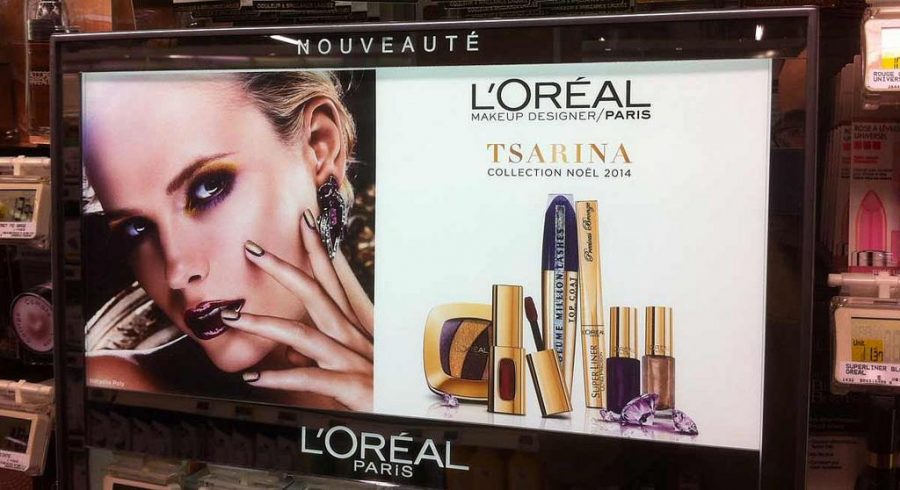L’Oréal Paris has recently received some controversy over the firing of their first transgender model, Munroe Bergdorf, for her comments pertaining to race on a Facebook post back in August. The rant was primarily focused on the injustices perpetrated on colored populations by the white race and how racism is inherited from generation to generation by white people. “Once white people begin to admit that their race is the most violent and oppressive force of nature on Earth… then we can talk,” she wrote. This language obviously didn’t gel well with L’Oréal who had hired her to be a part of their UK marketing campaign. “L’Oréal supports diversity and tolerance towards all people irrespective of their race, background, gender, and religion,” they said in an official statement on September 1. “We believe that the recent comments by Munroe Bergdorf are at odds with those values, and as such we have taken the decision to end the partnership with her.”
Bergdorf fought back against this official statement in other Facebook post, “First up, let’s put my words in context, as the Daily Mail failed to do so. This ‘rant’ was a direct response to the violence of white supremacists in Charlottesville.” Unfortunately, putting her comments into “context” does not amend her original comments and only goes to further show how speech like this only alienates potential allies in the fight against racism.
To begin, the original Facebook never said anything about Charlottesville in writing. The only possible context we could decode from the post is the timing of its posting, which was in August when Charlottesville was a major news story. The Daily Mail posted the entire Facebook post in their article, so it’s a tad odd that the defense that Bergdorf would try to apply is context.
For her sake, let’s apply the context of Charlottesville to the original post. In the first line of her rebuttal Bergdorf says that her original post was directed at the demonstration of white supremacy that shook the nation in August. I think most of us can agree that white supremacists are a group of people worthy of calling out, right? I would think so, but this is not the group that Bergdorf called out in her original post. It’s hard to say that your original post was directed towards a small subset of people when the opening of that post was directed at the entirety of a race, “Honestly I don’t have the energy to talk about the racial violence of white people anymore. Yes, all white people.”
Bergdorf continues to clarify that she was criticizing white supremacy by attaching history to her point. “ Secondly, identifying that the success of the British Empire has been at the expense of the people of colour, is not something that should offend anyone. It is a fact. It happened,” she wrote. And although I can’t disagree with her that The British Empire did reach such levels of success by means of colonizing territories of ethnically diverse nature, it’s a little hard to connect this form of centuries old white supremacy to what occurred in Charlottesville, let alone enough to indict an entire race of people whose heritage did not come directly from the British.
Further into her second Facebook post, Bergdorf clarifies one of the more controversial stances she took in her original statements. “When I stated that “all white people are racist”, I was addressing the fact that western society as a whole, is a system rooted in white supremacy,” wrote Bergdorf. And while this may be what she meant, this is not what she originally said, and continuing to read her explanation only reveals more confusing contradictions. “ Unknowingly, white people are socialized to be racist from birth onwards. It is not something genetic. No one is born racist,” she continued in her second post. This seems like the exact opposite of what she said in her original post when she wrote, “Come see me when you realise that racism isn’t learned, it’s inherited and consciously or unconsciously passed down through privilege.” I would like to know what difference in meaning Bergdorf sees between learning to be racist and being socialized to be racist, along with being born a racist and inheriting racism.
Bergdorf goes on to criticize the L’Oréal brand for not standing with women of diverse nature against the roots of racism. “If L’Oreal truly wants to offer empowerment to underrepresented women, then they need to acknowledge the reason why these women are underrepresented within the industry in the first place. This reason is discrimination,” she wrote. And while no respectable company stands with racism, discrimination, or its foundations, I’m a little confused by what exactly Bergdorf wants from L’Oréal. Does she want L’Oréal to make an official statement crying out against colonialism and slavery? Bergdorf writes that women of color are typically discriminated against in the makeup industry, but if anything L’Oréal is the exception to the rule. In fact, the marketing campaign that Bergdorf was fired from is called True Match and is about finding matchin shades of makeup for people of color. So what exactly is Bergdorf asking from L’Oréal? Does she want them to make a similar stance against the white race that she made in her Facebook post?
It’s a little hard for me to criticize Bergdorf because I’m not one to stand against diversity. It’s just that standing against an entire race of people is definitely not the way to progress things, even if that race is the white race. People pushing for more representation and diversity in makeup and any other industry should not feel that alienating a race of potential allies in their fight for diversity is necessarily the right way to approach things. Were Bergdorf’s words enough to have her fired from a campaign focused on diversity? That’s not really for me to say — all I can say is that what she said is not the right approach to reaching her goals, and that anybody who is not a racist should not have to be placed under the racist label.



